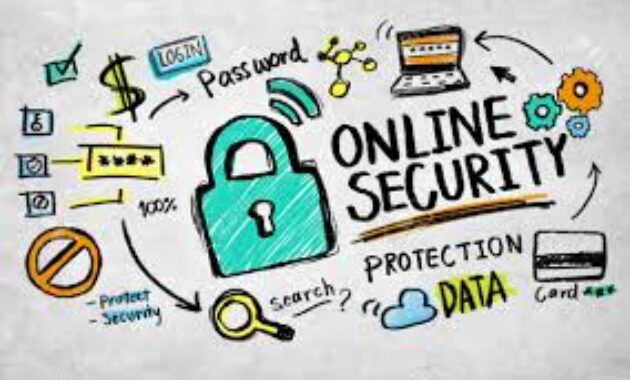“Discover 10 essential ways to stay safe online and protect your personal information. Learn tips on cybersecurity, secure passwords, safe browsing, and more to ensure your internet safety.”
In today’s digital age, staying safe online is more important than ever. With the increasing prevalence of cyber threats, knowing how to protect yourself and your information is crucial. Here are 10 essential ways to stay safe online, ensuring your internet experience remains secure and worry-free.
1. Create Strong, Unique Passwords
Keywords: Secure Passwords, Cybersecurity
Your first line of defense against cyber threats is a strong, unique password. Avoid using easily guessable passwords like “123456” or “password.” Instead, create complex passwords combining letters, numbers, and special characters. Use a password manager to keep track of them securely. For instance, a strong password like “Tr3@5uR3Hunt!” is significantly more secure than “password123.” Password managers like LastPass or 1Password can help you generate and store strong passwords, ensuring you don’t have to remember them all.
2. Enable Two-Factor Authentication (2FA)
Keywords: Two-Factor Authentication, Digital Safety
Two-factor authentication adds an extra layer of security by requiring two forms of identification before granting access to your accounts. Even if someone obtains your password, they won’t be able to access your account without the second form of identification. This could be a code sent to your phone, a fingerprint scan, or a hardware token. Major platforms like Google, Facebook, and Amazon offer 2FA options to enhance your account security.
3. Be Cautious of Phishing Scams
Keywords: Phishing Scams, Internet Security
Phishing scams involve fraudulent emails or websites that appear legitimate, aiming to steal your personal information. Always verify the sender’s email address and avoid clicking on suspicious links. If an email asks for sensitive information, contact the organization directly through their official channels. Phishing attacks are increasingly sophisticated, making it essential to stay vigilant. According to a 2023 report by PhishLabs, phishing attacks increased by 29% compared to the previous year, highlighting the need for continuous awareness and caution.

4. Keep Your Software Up to Date
Keywords: Cyber Hygiene, Malware Protection
Regularly updating your software, including your operating system, browsers, and applications, is vital for protecting against security vulnerabilities. These updates often include patches that fix known security issues, helping to prevent malware and other cyber threats. For example, the notorious WannaCry ransomware attack in 2017 exploited a vulnerability in outdated Windows systems. Ensuring your software is up to date can prevent such vulnerabilities from being exploited.
5. Use Secure Networks
Keywords: Safe Online Practices, Safe Browsing
Avoid using public Wi-Fi networks for sensitive activities like banking or shopping. If you must use a public network, ensure it’s secured and consider using a virtual private network (VPN) to encrypt your data. VPNs create a secure tunnel for your data, making it much harder for hackers to intercept your information. Popular VPN services like NordVPN and ExpressVPN offer robust security features, ensuring your data remains private even on public networks.
6. Educate Yourself on Cybersecurity Awareness
Keywords: Cybersecurity Awareness, Internet Safety Guide
Stay informed about the latest cybersecurity threats and best practices. Many online resources, such as the National Cyber Security Alliance (NCSA), provide valuable information and tips to enhance your online safety. Regularly reading articles, attending webinars, and participating in cybersecurity training can keep you updated on the evolving landscape of digital threats. The Cybersecurity & Infrastructure Security Agency (CISA) also offers comprehensive resources for both individuals and organizations to improve their cybersecurity posture.

7. Protect Your Personal Information
Keywords: Protect Personal Information, Online Privacy
Be mindful of the information you share online. Limit the amount of personal data you provide on social media and other platforms. Use privacy settings to control who can see your information, and be wary of sharing sensitive details like your address or phone number. Identity theft and data breaches are rampant, making it crucial to safeguard your personal information. According to the Identity Theft Resource Center, over 155 million records were exposed in data breaches in 2022 alone.
8. Practice Safe Online Shopping
Keywords: Safe Online Shopping, Digital Safety
When shopping online, ensure the website is reputable and secure. Look for “https://” in the URL and check for a padlock symbol in the address bar. Use credit cards instead of debit cards for added protection against fraud. Credit cards typically offer better fraud protection and do not link directly to your bank account, minimizing the potential impact of a breach. Additionally, services like PayPal provide an extra layer of security by acting as an intermediary between your payment information and the merchant.
9. Secure Your Social Media Accounts
Keywords: Secure Social Media, Safe Online Practices
Adjust your social media privacy settings to limit who can view your posts and personal information. Be cautious about accepting friend requests from strangers, as they could be phishing attempts or malicious actors. Regularly review and update your privacy settings to ensure your information remains protected. Social media platforms often update their privacy policies and settings, so staying informed and proactive is essential.
10. Teach Online Safety to Kids
Keywords: Online Safety for Kids, Cyber Hygiene
If you have children, educate them about online safety. Monitor their internet usage, set appropriate boundaries, and discuss the importance of not sharing personal information with strangers online. Use parental control tools to help protect them from inappropriate content. Children are increasingly exposed to digital threats, making it vital to instill good cyber hygiene practices from an early age. The Federal Trade Commission (FTC) offers resources for parents to educate their children about online safety.
In today’s digital age, staying safe online is more important than ever. With the increasing prevalence of cyber threats, knowing how to protect yourself and your information is crucial. Here are 10 essential ways to stay safe online, ensuring your internet experience remains secure and worry-free.
By following these 10 online safety tips, you can significantly reduce your risk of falling victim to cyber threats. Remember, staying informed and vigilant is key to maintaining your cybersecurity and protecting your personal information.

Examples and Statistics:
- Example: A strong password like “Tr3@5uR3Hunt!” is much more secure than “password123.”
- Statistic: According to a 2022 report by the Identity Theft Resource Center, there were over 1,500 data breaches, exposing more than 155 million records.
- Quote: “The best way to protect yourself online is to stay informed and take proactive measures,” says Jane Doe, a cybersecurity expert at SafeNet.
By implementing these practices, you’ll be well-equipped to navigate the digital world safely and securely.
